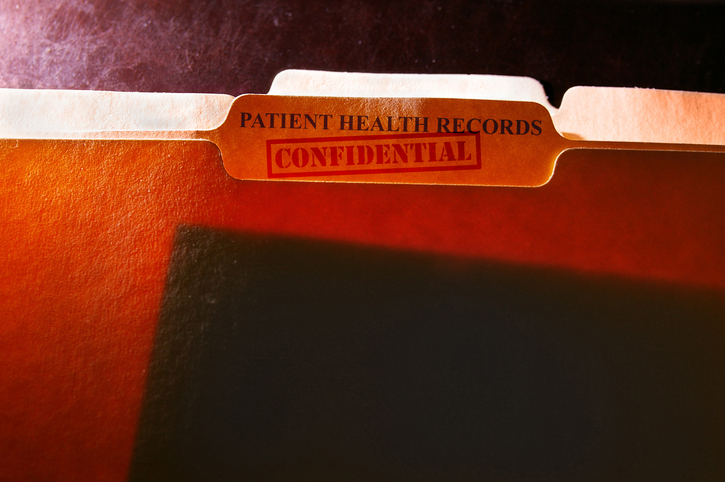The Impact Felt in Healthcare Breaches

According to recent studies, healthcare organizations are three times more likely to be hit by a cyber attack than other industries, and it is really not so surprising. The endless amount of data left behind by a constantly revolving door of incoming and outgoing patients can be incredibly enticing to cybercriminals. On top of that, hackers also know that healthcare companies and hospitals don’t take cybersecurity as seriously as they should, so it becomes easy pickings.
The fact of the matter is that healthcare breaches can be incredibly detrimental to the organization and the patients that they promise to protect, so security and compliance need to be the number one priority. Today we will discuss the true, far-reaching impacts that a data breach can present and how healthcare organizations can stay ahead of the curve to help their bottom line and their patients.
Financial Impacts
The greatest danger of a data breach in the healthcare sector is the potential financial hit that can impact both the medical establishment and its patients. If a hospital or doctor’s office is hit by a cyber attack, then they must automatically go into panic mode as they eliminate the threats within their systems, patch any vulnerabilities to avoid future issues, and spend time and money trying to repair their reputation.
All of these tasks can be incredibly costly. Recent numbers suggest that a data breach could cost an organization $211 per compromised record in addition to potential fines. Paying for these solutions takes money away from research and care that should be passed onto your patients.
While your hospital might have the revenue to pay for such issues, your patients are not always so lucky, and that is why it is your duty to protect them. The HIPAA Security Rule was made for this exact purpose. All medical providers are required to put integrity controls and audits in place to ensure that they are doing everything necessary to prevent potential cyberthreats or data loss.
These protections are necessary because any data that is stolen can be used maliciously to put patients in a terrible financial predicament. The credit card numbers that patients provide to pay for their care can be used by hackers to take out fraudulent loans, and their social security numbers can be used for identity theft. When a patient finds themselves in unexpected financial hardship, it can be hard to dig their way out, and they may even need to hire a financial professional or take out loans to get out of their negative situation, which could require them to pay even more. You do not want lax security at your medical establishment to be responsible for putting your patients in a bad place.
Danger to Patients
When patients start to believe that their doctor doesn’t have their best interests at heart, they lose not only money but also the respect of your organization. This loss of trust will not only affect your bottom line, but it could also impact the health of the patient. As it is, many people in rural areas already visit the doctor less often than they should, typically due to the belief that they won’t get the best care or that their privacy will be at risk. If patients find out that their local hospital was responsible for a data breach, then they may be even more afraid to go there for the care they need, and they could become sicker as a result.
In addition to casting this doubt about healthcare providers, hackers can also impact the health of patients more directly by staging certain attacks that can put people in immediate danger, such as a ransomware attack. Essentially, this strategy involves a hacker finding their way into the healthcare network and installing malware that allows them to take control of the computers and equipment inside of the hospital so it cannot be used until a ransom is paid, and even then it may not be guaranteed that the hackers will follow their word.
Ransomware can create an incredibly dangerous scenario for patients who are in the middle of receiving care. Imagine a device being shut down during a life-saving surgery or a doctor not getting the correct dose of medication when they need it most. It is a terrifying idea that could leave patients in danger, and it is yet another reason why healthcare centers need to be proactive about cybersecurity.
Proactive Security
Cybercrime will likely become even more of a threat as time goes on and hackers continue to see that in our new post-COVID-19 world of remote work and digitization of data, most patient information is now housed in online servers instead of physical file cabinets, so it is easier to gain access. Because of this new world, hospitals must be even more careful to protect patent data. A good start is to house all of that information on a backup server, so even if a ransomware attack or other threat does occur, doctors and administrators can quickly find the information required to help a patient in need.
While the COVID-19 pandemic continues, many medical professionals will follow social distancing guidelines by working from home. However, caution is necessary because if your home network is not protected and you view confidential patient information, hackers could quickly take advantage. The easiest solution is to only view confidential information at the job or with a company-approved and provided device.
Finally, medical professionals simply need to become more educated on cybercrime so they know the risks and can actively avoid them. Awareness of using complex passwords and two-factor authentication is important, in addition to understanding the threat of common scams, like phishing emails. Hospital administrators need to make it a point to have regular classes and meetings where these threats are discussed so doctors aren’t left in the dark.
As you can see, hospitals have a major responsibility to protect their patients and the security of their organization because failure to do so could result in disaster. Consider the threats and resolutions described above, and you can care for the health of the population with confidence.
Note: This blog article was written by a guest contributor for the purpose of offering a wider variety of content for our readers. The opinions expressed in this guest author article are solely those of the contributor and do not necessarily reflect those of GlobalSign.
*** This is a Security Bloggers Network syndicated blog from Blog Feed authored by Blog Feed. Read the original post at: https://www.globalsign.com/en/blog/impact-felt-healthcare-breaches






